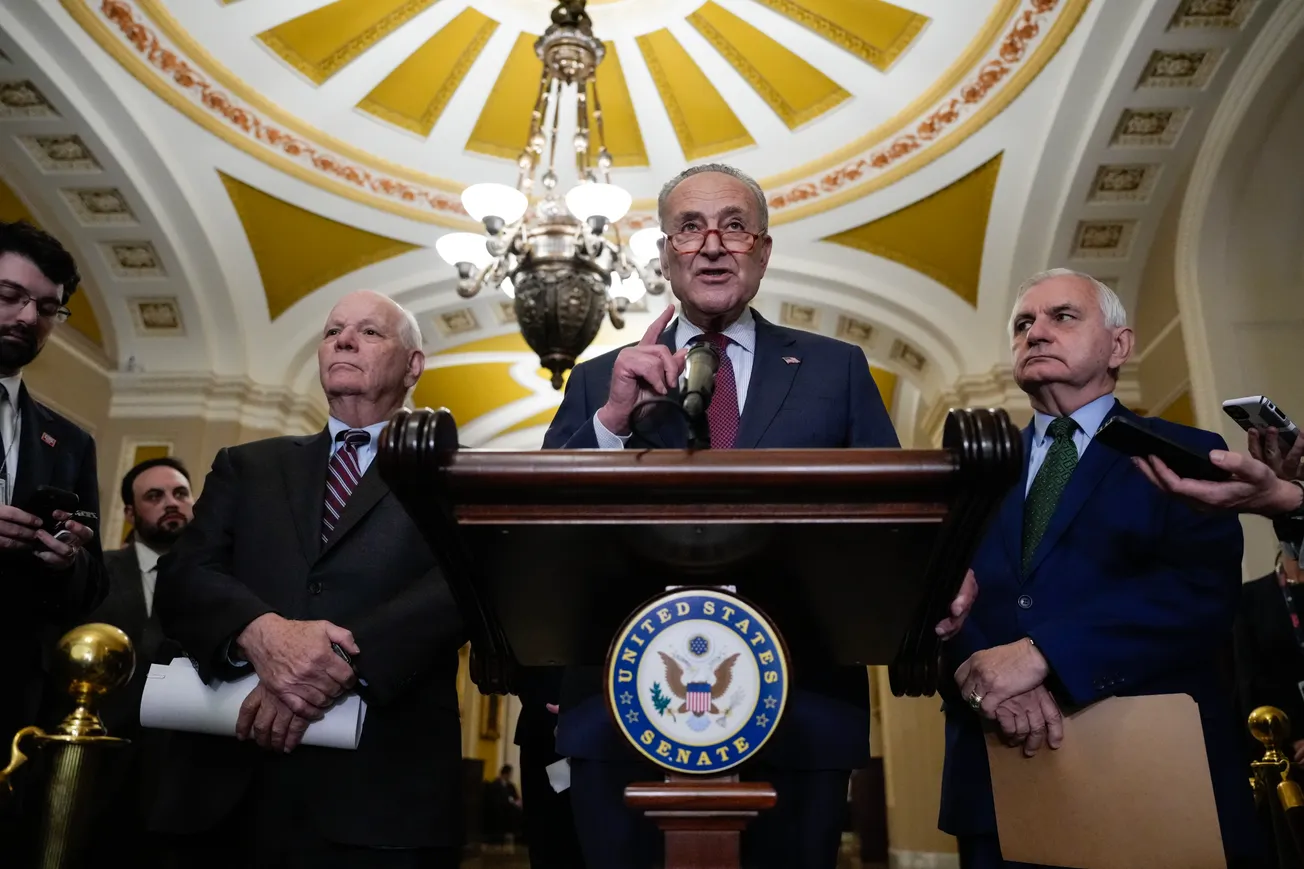- The U.S. has limited influence in the Israel-Palestine conflict, despite being held accountable
- Some senators propose conditions for aid that may not align with the complexity of the conflict and the limited authority the U.S. holds in this situation
- The Israel-Palestine conflict is highly complex, presenting significant challenges to achieving a two-state solution
- Micromanaging foreign policy through these conditions may hinder President Biden's ability to navigate the crisis
- President Biden should support the House bill without attaching conditions as a more practical approach to addressing the Middle East emergency
The famous management guru Peter Drucker once said: "Authority without responsibility is tyranny, and responsibility without authority is impotence."
The second part of Drucker's famous quote appears to apply well to the Biden administration's Middle East policy since the horrific Hamas attack on Israel. It looks increasingly like the world holds America responsible for Israel's actions in Gaza, although America is not responding directly to Hamas.
After Biden visited Israel and delivered an Oval Office address supporting Israel, many people in the Arab world and the West, including in Washington, insisted that a phone call from the White House to the Israeli Prime Minister could magically make things happen. But America is relatively powerless despite its military presence, stature as a Superpower and Middle East broker, and the instant offer of military aid to Israel.
Indeed, Israel has sternly ignored most overtures by the United States about its actions in Gaza. But perception is a reality in the world of geopolitics.
The Biden administration has called for a "pause" in the bombardment to rescue hostages and send in humanitarian aid; Israel has rejected the request. After intense diplomacy by Secretary Blinken, Israel finally relented, agreeing to regular daily four-hour pauses for civilians to flee. But Israel continues to resist sending required amounts of humanitarian aid or resuming fuel, water, electricity, and gas supplies to Gaza.
Secretary Blinken wants Palestinians to control both the West Bank and the Gaza Strip after the hostilities are over. Israel says that it will occupy Gaza and control it after its military operations.
To be sure, the Biden foreign policy team deserves some blame for this situation. The CIA never saw the attacks coming. America's unpreparedness is now forcing officials to put out the fire by engaging in "shoot-from-the-hip" diplomacy pleasing no one in the region.
Worse, Jake Sullivan, the brash and uber-confident National Security Adviser, penned a long piece in Foreign Policy magazine on Oct 5 that showed how clueless the United States was in the days leading to the horrific attacks. "The Israeli-Palestinian situation is tense, particularly in the West Bank, but in the face of serious frictions, we have de-escalated crises in Gaza and restored direct diplomacy between the parties after years of its absence." Two days later, Hamas attacked Israel (from Gaza, not the West Bank) in the worst such event against Jews since World War II. [Foreign Policy removed Sullivan's statement from the online version, but print editions had already carried his words.]
Attempting to legislatively manage the serious situation, 24 Democrat senators this week from across the political spectrum wrote a polite but firm letter to President Biden, outlining five objectives as conditions for their support to provide Israel with aid and weapons.
- Align with an Israeli strategy that you believe will effectively degrade and defeat the threat from Hamas. The italicized words bind President Biden because, much as it is his wish, the language demands responsibility when we know Biden lacks authority. Biden is not Israel's Commander in Chief.
- Prioritize the release of hostages. America has been working 24/7 on this issue and is rumored to have sent in Special Forces to Gaza to rescue hostages, but so far, there has been little movement because the Israeli Defense Forces control the situation on the ground—another case of American responsibility without authority.
- Advance a viable and achievable military plan that supports a long-term vision for peace, security, and Palestinian self-determination in the form of a two-state solution. This is by far the most stringent responsibility-without-authority condition. Hamas doesn't favor a two-state solution; neither does Prime Minister Netanyahu. America hasn't solved the conflict for over 50 years, and a $14.1 billion bill will somehow do this?
- Abide by U.S. and international law, including the protection of civilians. This is another responsibility-without-authority condition. How can the U.S. dictate to Israel that international law must be upheld?
- Advance efforts to provide desperately needed humanitarian assistance to civilians in Gaza. Israel has thus far severely restricted the movement of relief trucks and has refused to budge. How can Biden, without authority, change the situation?
Well-intentioned as these conditions are, they only handicap Biden's options and complicate his administration's policy to maintain the delicate balance in the Middle East to prevent a wider conflict. Biden originally asked for $14.1 billion, and the House approved it fully without any conditions on the conduct of the conflict, trusting the Biden administration to do the right thing. Ironically, senators from Biden's own party feel it necessary to micromanage his foreign policy.
Worse, Senate Democrats disagree with the House bill because it doesn't include money for Ukraine and offsets the spending through cuts to hiring additional IRS agents. Note that neither House condition impairs Israel's ability to do what it believes it should do. So the money is there, but the Senate doesn't intend to take the bill up. And thus far, the Senate hasn't proposed an alternative plan.
President Biden should call the senators' bluff and ignore it. Given the emergency circumstances, he should announce that he supports the House bill and urge Chuck Schumer to pass it immediately, with no conditions attached, daring the 24 senators to vote against it because their unrealistic requirements may not be all met when Biden has no authority to meet them.
Unrealistic, not because the senators' demands don't make moral sense. They do, but this is not America's war - it is a conflict between two other parties fueled by their mutual deep-seated tension of over 75 years.
We could use your help. Support our independent journalism with your paid subscription to keep our mission going.








